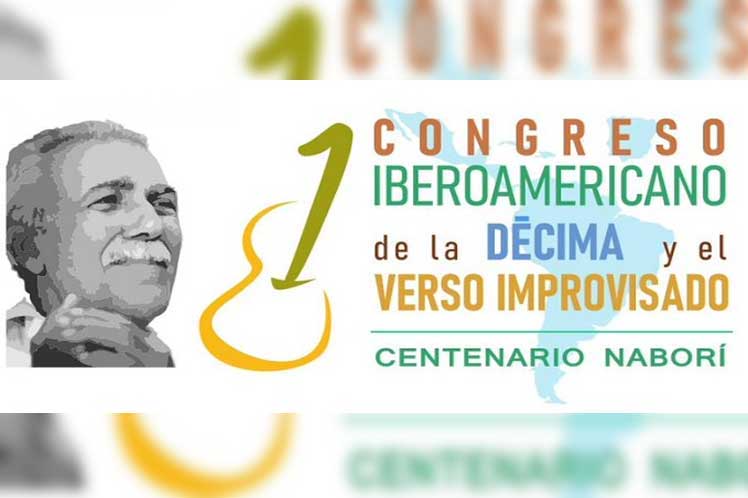Under the motto Come with your tenth of mine, the event will pay tribute to the island’s poet Jesús Orta Ruiz (Indio Naborí), on the centenary of his birth, as well as five years after the declaration of the Cuban point as Intangible Cultural Heritage of Humanity, the organizers reported.
At a press conference, the president of the initiative’s managing committee, Luis Paz Esquivel, pointed out that the event will welcome poets-repentistas, writers, musicians, cultural promoters and researchers from Ibero-America, in order to “promote a fruitful exchange of experiences on the development, consolidation and actuality of the tenth”.
The also director of the Ibero-American Center of the Tenth and the Improvised Verse highlighted the importance of the project as an ideal space for the fraternization of all the people involved in keeping the traditions alive.
Backed by the Naborí Indian Cultural Research and Promotion Office, the Cuban National Commission of UNESCO and the House of Latin American and Caribbean Culture, the event also praises the movement of improvisers on the island a decade after it was declared Intangible Cultural Heritage of the Nation.
“We wanted to identify the three days around three central themes, which is why the first day will be dedicated to the new generations, the projects that promote the practice of this expression among children and young people, and their work results,” explained Paz.
Similarly, he stressed that the event will dedicate its second date to the female presence within the poetry sung and written on the island, while it will close with a tribute to the Naborí Indian with exchange spaces on his work and artistic presentations.
Likewise, the coordinator of the entity dedicated to the work of the Naborí Indian, Fidel Orta, highlighted the importance of the meeting, which marks the high point of the celebrations for the centenary of the artist, who since September 2021 is revered from different cultural spaces of the largest of the Antilles.
Likewise, he highlighted the popular nature of Naborí’s work, which on this occasion will foster the confluence of Cuban folklore practitioners of various generations around his legacy and whose name honors the award that will distinguish defenders of the genre in Ibero-America.
In this sense, Paz pointed out that the personalities of research, criticism, practice and writing of the tenth Maximiano Trapero (Spain), Roberto Silva (Puerto Rico) and the Cubans Orlando Laguardia, Waldo Leyva, Virgilio Lopez Lemus and Juana Tomasa Quiala.
ef/ro/lbl









